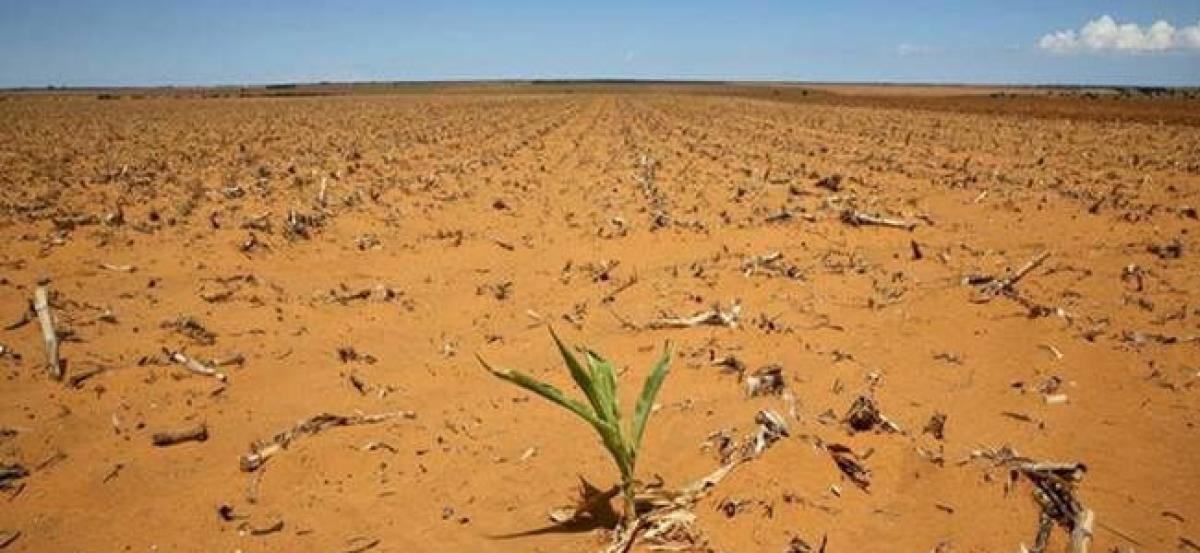Live
- Metro to sell Trade Fair tickets at 55 stations
- Revise income limit for EWS admissions in pvt schools to `5 lakh: LG
- MCD mayoral election today: Satya reappointed as presiding officer
- Don’t fall in trap of drug addiction, youths cautioned
- Air Pollution Crisis: LG approves redeployment of Civil Defence volunteers
- Delhi police orders checking of hotels to nab criminals
- Kavya seeks people’s support for development of district
- Leaders remember People’s poet Kaloji
- BJP’s win shows people back corruption-free govt: Dattatreya
- UP: SC’s demolition verdict will help curb organised crime
Just In
India at risk of food shortage due to climate change: Study


India is among the countries which are at the greatest risk of food insecurity due to weather extremes caused by climate change, a global study suggests. Researchers led by the University of Exeter in the UK examined how climate change could affect the vulnerability of different countries to food insecurity - when people lack access to a sufficient quantity of affordable, nutritious food.
London: India is among the countries which are at the greatest risk of food insecurity due to weather extremes caused by climate change, a global study suggests. Researchers led by the University of Exeter in the UK examined how climate change could affect the vulnerability of different countries to food insecurity - when people lack access to a sufficient quantity of affordable, nutritious food.
The study, published in the journal Philosophical Transactions of the Royal Society A, looked at 122 developing and least-developed countries, mostly in Asia, Africa and South America. The countries at the greatest vulnerability to food insecurity when moving from the present-day climate to 2 degrees Celsius global warming are Oman, India, Bangladesh, Saudi Arabia and Brazil, researchers said.
"Climate change is expected to lead to more extremes of both heavy rainfall and drought, with different effects in different parts of the world," said Richard Betts, a professor at the University of Exeter.
"Such weather extremes can increase vulnerability to food insecurity," said Betts. "Some change is already unavoidable, but if global warming is limited to 1.5 degrees Celsius, this vulnerability is projected to remain smaller than at 2 degrees Celsius in approximately 76 per cent of developing countries," he said.
Warming is expected to lead to wetter conditions on average - with floods putting food production at risk - but agriculture could also be harmed by more frequent and prolonged droughts in some areas, researchers said.
Wetter conditions are expected to have the biggest impact in South and East Asia, with the most extreme projections suggesting the flow of the River Ganges could more than double at 2 degrees Celsius global warming, they said.
"Some areas are projected to see an increase in flood event lengths of 4 days or more, particularly India and Bangladesh, for which such increases are projected in all ensemble members to some extent, researchers said.
The areas worst affected by droughts are expected to be southern Africa and South America - where flows in the Amazon are projected to decline by up to 25 per cent, according to the researchers. They examined projected changes in weather extremes and their implications for freshwater availability and vulnerability to food insecurity.

© 2024 Hyderabad Media House Limited/The Hans India. All rights reserved. Powered by hocalwire.com






